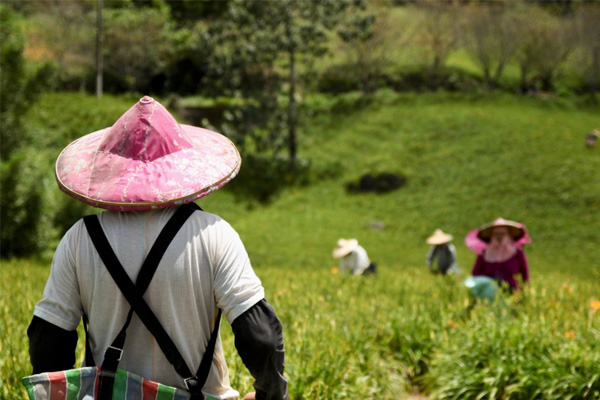The Prabowo-Gibran Presidential Government carries the main mission of targeting food self-sufficiency within four years. This problem is an important issue that has an impact on the food crisis of high population growth every year. This pessimistic view is also supported by Malthus’ theory which states that population growth will result in poverty if not controlled properly (Rochaida 2016). The high consumption of rice in Indonesia makes Indonesia the country with the highest rice consumption in Asia. Achieving food security must be accompanied by a strategy to increase production and productivity in the agricultural sector. This strategy indirectly includes part of the effort to maintain rice self-sufficiency.
Social and political turmoil will threaten a country if food availability cannot meet the consumption needs of the community in it. Law Number 18 of 2012 explains that food security is a condition where food is fulfilled for the country up to individuals which is reflected in the availability of sufficient food, both in quantity and quality, safe, diverse, nutritious, evenly distributed and affordable and does not conflict with religion, cultural beliefs of the community, to be able to live healthily, actively, and productively in a sustainable manner. By realizing food sovereignty, food independence, and food security, food security can be strengthened. Based on the concept of food security, it can also be concluded that rice self-sufficiency is a condition where a country can meet its rice consumption through domestic rice production. Therefore, agriculture is the foundation for economic growth.
The Ministry of Agriculture is trying to increase rice production and productivity to meet the food needs of the people in Indonesia. By achieving rice self-sufficiency, they believe that farmer welfare will increase and poverty rates can be reduced. The strategies that are encouraged include intensification, namely increasing rice crop productivity, and extensification through expanding agricultural land areas. In fact, Indonesia is currently still importing rice. Problems can arise when rice prices fluctuate, for example price increases cause a lot of speculation and manipulation in rice trading by traders if they do not import rice, resulting in an imbalance in the distribution of rice scarcity (McCulloch and Timmer 2008).
Then, how to achieve rice production for rice self-sufficiency?
- Development of smart agriculture from upstream to downstream and modernization of agricultural facilities and infrastructure
- Optimization of idle land for agricultural, plantation and livestock activities
- Development of agricultural corporations as a means of forming millennial farmers through agricultural entrepreneurship
- Shortening the distribution chain.
- Institutional strengthening and support for business guarantees or farmer insurance as a means of improving the quality of human resources
- Government policies that are in accordance with current agricultural conditions and circumstances
Rice self-sufficiency must continue to be pursued and remains one of the government’s policy priorities, although the concept of self-sufficiency has changed by opening up the possibility of imports to a certain extent, namely during times of drought and exports during times of surplus.
Agro Indo Mandiri will participate in supporting rice self-sufficiency by encouraging farmers to increase domestic rice production through intensive agricultural assistance and training to help farmers optimize harvest yields through an intensification approach. In addition, we also support the extensification program by providing recommendations and support for effective and sustainable land management. Together, we can create a more advanced agricultural ecosystem, improve farmer welfare, and ensure sufficient food availability for all Indonesian people. It’s time to work together for a brighter agricultural future!


